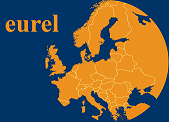In ancient Roman law, homo sacer was a person whom, being banned from the civitas, anybody could kill, but at the same time could not be sacrificed in religious rituals. In Agamben's philosophy, the figure of the homo sacer epitomizes the inner paradox of the sovereign power, where, outside the ‘qualified' citizenship provided by the State, the ‘bare life' of the person is deprived of any right.
Shifting the hermeneutics of the homo sacer from the realm of political philosophy to that of religious freedom in ethical investments, this paper interprets the current emergence of the law of Islamic finance in Western secular States as further example of the paradox of the sovereign power.
In particular, by focusing on UK regulation, the study will describe the ‘bare life' of Islamic finance as a ‘sacred market', a locus sacer, that anybody can enter, but that contemporarily lacks any ‘qualified' citizenship in the secular order. In fact, in line with the deliberate choice to maintain shari‘ah law as a non-State domain, (1) the UK has no current central authority for ensuring that transactions are shari‘ah-compliant; (2) there is no express regulatory approval of the members of shari‘ah supervisory boards; (3) there are no specific courts that hear Islamic financial cases; (4) while Islamic products are traded in the UK, English law does not recognize shari‘ah as a legal system capable of governing a contract, thus inevitably leading to disputes based on ‘shari‘ah risk'.
By highlighting the contradictions of Islamic finance as a locus sacer, the paper will show how these persistent issues of law-making and law-enforcement impose additional legal constraints on market actors, and will suggest regulatory strategies to remove the ‘state of exception' of Islamic finance as pre-condition for its sound accommodation in secular jurisdictions.
- Other

 PDF version
PDF version

